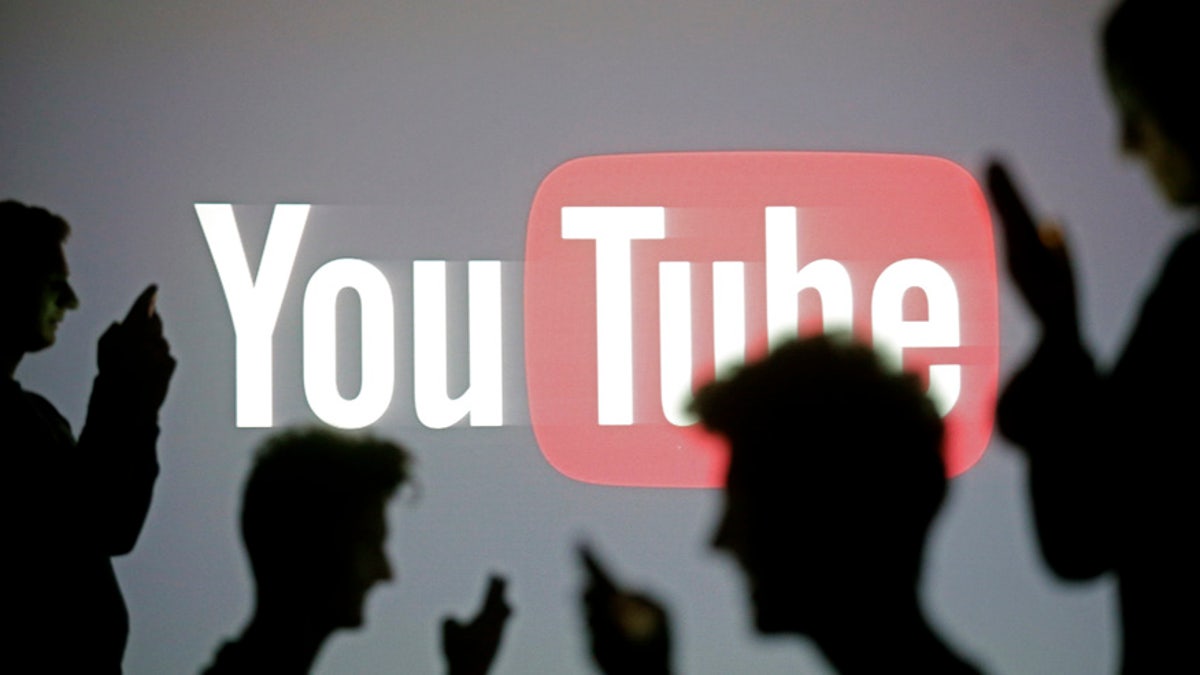
File Photo: People are silhouetted as they pose with mobile devices in front of a screen projected with a Youtube logo, in this picture illustration taken in Zenica October 29, 2014. (REUTERS/Dado Ruvic)
After their ads appeared next to extremist content on YouTube, telecom companies AT&T and Verizon said they were going to pull their ads from the video site. But the fallout may go further than just YouTube.
Google’s Chief Business Officer Phillip Schindler issued an apology on the company’s blog on Monday, saying the practice is unacceptable. “We know that this is unacceptable to the advertisers and agencies who put their trust in us,” Schindler wrote in the blog statement.
YOUTUBE UNDER FIRE FOR HIDING LGBT VIDEOS
On Wednesday, The Wall Street Journal said the ad cuts may expand past YouTube, covering “much of their advertising from Google.”
Google did not immediately respond when reached for comment for this story.
The company has promised to work on reforms and tighten safeguards and introduce new tools to make it easier for advertisers to manage where their ads appear.
Google Chairman Eric Schmidt said that with YouTube’s size and scale (more than 100 million hours of video are watched each day), it has a responsibility to match ads and content properly.
“What we do is, we match ads and the content, but because we source the ads from everywhere, every once in a while somebody gets underneath the algorithm and they put in something that doesn’t match,” Schmidt said on FOX Business Network, in a discussion with Maria Bartiromo. “We’ve had to tighten our policies and actually increase our manual review time and so I think we’re going to be okay.”
The moves made by AT&T and Verizon, who are working on their own ad-targeting platforms, coupled with recent moves from others such as McDonald’s, Audi, L’Oreal and retail giant Marks & Spencer to pull their ads designed for U.K. markets may negatively impact Google’s business.
GOOGLE HOME SURPRISES USERS BY PLAYING 'BEAUTY AND THE BEAST' PROMO
Pivotal Research analyst Brian Wieser downgraded Google shares of Google to hold from buy, noting the company may have done global harm to itself.
“Overall, we think that the problems which have come to light will have global repercussions as UK marketers potentially adapt their UK policies to other markets and as marketers around the world become more aware of the problem,” Weiser wrote in a note to investors. “This should curtail spending slightly from the large agency-serviced brands which probably account for a quarter of spending on Google.”
According to research firm eMarketer, Google is expected to own generate $28.55 billion in 2017 from the lucrative search ad market in 2017. In the U.S., the research firm expects it to own 78% of all U.S.-related search ad revenue this year.




















